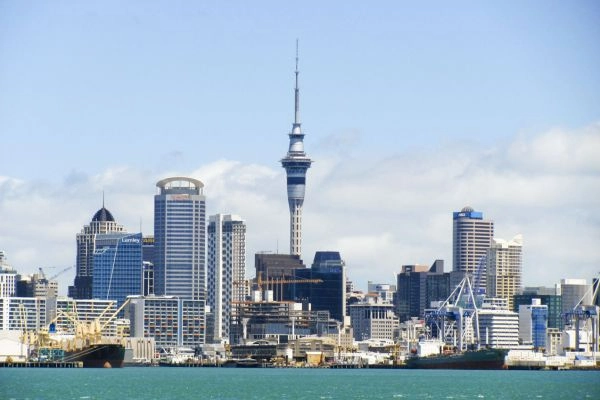Five Sustainability Reporting Frameworks Every New Zealand Business Should Know

Sustainability reporting is becoming a strategic necessity in New Zealand. Businesses are facing increased expectations from regulators, stakeholders, investors, and communities to disclose their sustainability performance transparently and credibly. But with multiple reporting frameworks available, it’s easy to get lost.
To build confidence and stay ahead, New Zealand businesses should be familiar with these six frameworks — each offering different tools, scopes, and cultural perspectives to guide their sustainability journey.
1. New Zealand Climate Standards (NZ CS)
Developed by the External Reporting Board (XRB), these are New Zealand’s legally mandated climate-related disclosure standards. They currently apply to large financial institutions such as registered banks, insurers, and investment managers with more than NZ$1 billion in assets or NZ$250 million in annual revenue. The NZ CS framework is grounded in the Task Force on Climate-related Financial Disclosures (TCFD) but is evolving to align with international IFRS S1 and S2 standards.
What makes NZ CS critical is its regulatory force — climate-related disclosures are not optional, and limited assurance is coming soon. Understanding NZ CS is a baseline requirement for affected businesses and a strong benchmark for others wanting to demonstrate climate leadership.
2. He Tauira (Te Puni Kōkiri)
He Tauira is a sustainability reporting framework developed by Te Puni Kōkiri to guide Māori businesses in communicating their impact in a way that reflects te ao Māori (a Māori worldview). It offers a culturally aligned approach grounded in Māori values like kaitiakitanga (guardianship of the environment), manaakitanga (hospitality and care), and whanaungatanga (relationship-building).
This framework is particularly relevant in Aotearoa, where engaging Māori stakeholders respectfully and meaningfully is vital for long-term legitimacy and success. He Tauira doesn’t just support reporting — it reflects how values and outcomes are experienced by Māori communities, offering a more holistic lens to sustainability.
3. Global Reporting Initiative (GRI)
GRI is the world’s most widely used sustainability reporting standard. It helps organisations disclose their environmental, social, and governance (ESG) impacts in a way that is stakeholder-centric and comparable across industries.
Many New Zealand businesses use GRI to meet international stakeholder expectations, enhance transparency, and demonstrate commitment to materiality and human rights. GRI’s modular structure allows businesses to choose the most relevant disclosures based on their specific impacts and stakeholders, which is particularly useful for SMEs seeking flexibility without compromising rigour.
4. IFRS S1 and S2 (ISSB Standards)
The International Sustainability Standards Board (ISSB), part of the IFRS Foundation, has released two key standards — IFRS S1 and IFRS S2 — that are expected to become globally accepted sustainability disclosure benchmarks.
- IFRS S1 sets the foundation for general sustainability-related financial disclosures, helping businesses communicate risks and opportunities that could affect their financial position.
- IFRS S2 focuses specifically on climate-related disclosures, building on the structure of the TCFD.
New Zealand’s XRB is actively working toward adopting these standards, making it essential for Kiwi companies to prepare now. These standards will promote consistency, comparability, and investor confidence — all essential for accessing capital and maintaining global trade competitiveness.
5. SASB Standards
Sustainability Accounting Standards Board (SASB) standards are designed to identify ESG issues that are financially material by industry. While not mandatory in New Zealand, they are highly valued by investors and multinational companies who want sustainability performance connected to financial outcomes.
SASB’s sector-specific guidance is especially useful for New Zealand exporters and firms operating globally. It allows businesses to sharpen their reporting by focusing on what matters most in their industry — from water use in agriculture to data privacy in tech.
How Speeki Can Help
Navigating multiple sustainability frameworks can be daunting, especially when you're aiming to meet both regulatory and cultural expectations. Speeki simplifies the process.
Our platform is designed to help New Zealand businesses:
- Align with NZ CS, IFRS S1 and S2, GRI, and the IR Framework
- Build culturally aware reports using structures aligned with He Tauira principles
- Use smart templates mapped to global and local disclosure requirements
- Centralise, verify, and structure sustainability data for audit readiness
- Manage materiality, stakeholder inputs, and programme actions from one integrated system
With Speeki, your reporting goes beyond compliance. It becomes a clear and confident statement of your commitment to sustainable leadership in Aotearoa.
References
- External Reporting Board (XRB) – Climate-related Disclosure Standards
- https://www.xrb.govt.nz/standards/climate-related-disclosures/
- Te Puni Kōkiri – He Tauira: Sustainability Reporting Framework for Māori Businesses
- https://www.tpk.govt.nz/en/a-matou-mohiotanga/enterprise/he-tauira-sustainability-reporting-framework
- Global Reporting Initiative (GRI) – About the Standards
- https://www.globalreporting.org/standards/
- IFRS – ISSB Sustainability Disclosure Standards (S1 and S2)
- https://www.ifrs.org/sustainability/
- SASB Standards – Industry-Based Sustainability Standards
- https://sasb.ifrs.org/standards/

.webp)

